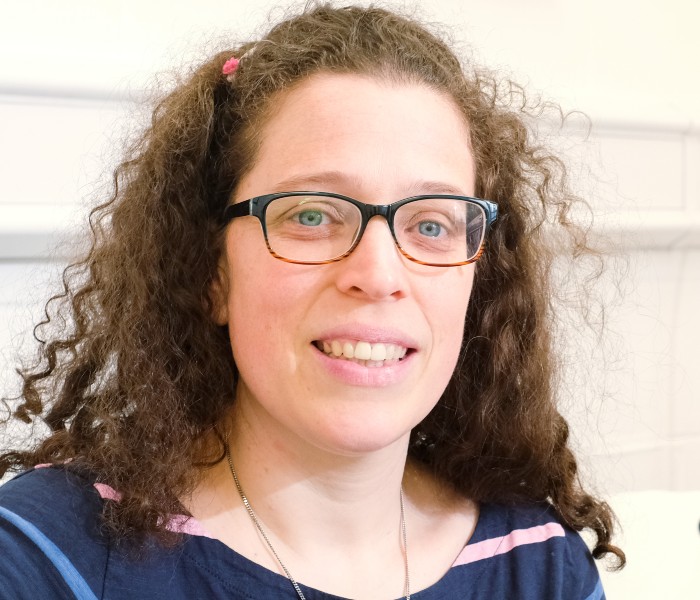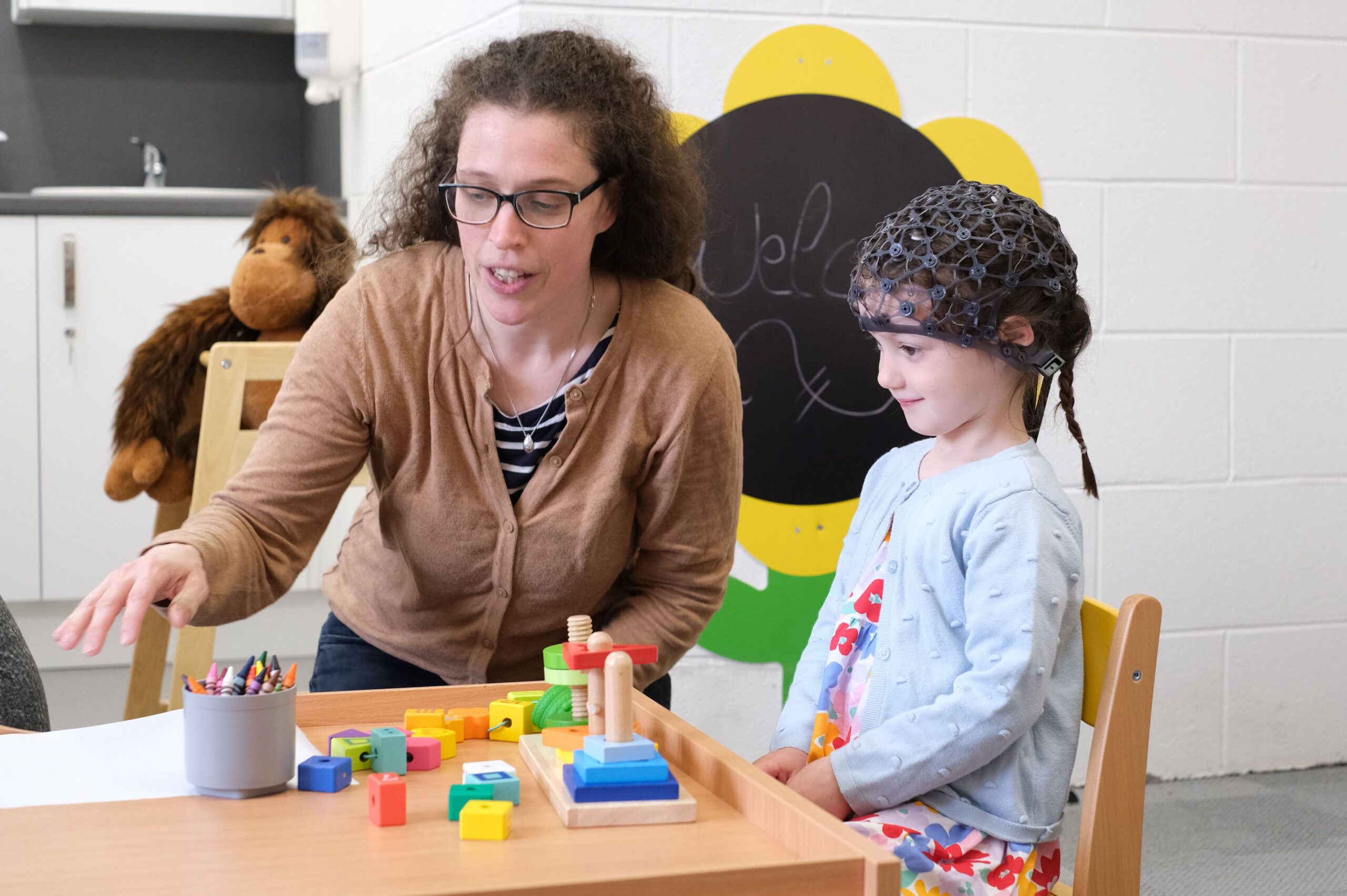A specialist laboratory which uses state of the art equipment for the study of behaviour, cognition, and brain function across the lifespan has opened at the University of Stirling.
The first of its kind in Scotland, the facility provides a welcoming environment to people of all ages, which will allow researchers to study cognition, health, and wellbeing in everyone from infants to older adults.
The new lab has a range of specialist equipment which is vital in the study of people who can’t effectively communicate, like infants who have not yet learned to talk.
Dr Line Caes, an Associate Professor in Psychology at the University of Stirling, said: “Measuring cognition in circumstances where verbal communication is either limited or not possible is a significant challenge, such as in the case of infants and very young children. The equipment in the Lifespan Research Lab can be used on young children, opening promising avenues in cognitive assessment.”
The Lifespan Research Lab will also give researchers the ability to monitor the behaviour of children using cameras linked to a screen in a separate room, allowing them to conduct naturalistic observations of children’s free play and interactions with others.
The facility will complement the University’s fully integrated research kindergarten, also the only one of its kind in Scotland.
 | Dr Line Caes “ The establishment of a Lifespan Research Lab will bolster Stirling’s unique capacity for cognitive development research.“ |
The lab has equipment for measuring non-verbal attention, brain activity, and physiological responses, including eye-trackers, mobile electroencepholography (EEG), skin conductance sensors, camera traps and thermal imaging cameras.
Researchers can use the new lab for a range of projects, including increasing understanding of parent-infant interactions during everyday situations, research into factors involved in the development and decline of socio-cognitive abilities across the lifespan, and research on the cognitive capacity of children in dealing with uncertainty.
Boost for funding bids
The new facility will also boost the University’s bids for research funding, enhancing the Division of Psychology’s ability to continue delivering world-class studies.
Dr Caes said: “The establishment of a Lifespan Research Lab will bolster Stirling’s unique capacity for cognitive development research. The provision of eye-tracking, physiological, and neurological assessment in the same space will allow an extremely powerful, multifaceted approach to the study of cognitive-emotional development, including brain function.
“The University of Stirling is the only institution in Scotland with an in-house kindergarten and the addition of this lab that allows assessment of younger children will bolster this research capacity, facilitate research bids by various principal investigators and increase Stirling’s reputation as a leader in the study of cognitive development.”
Dean of the Faculty of Natural Sciences, Professor Alistair Jump, added: “Psychology at the University of Stirling continues to go from strength to strength. This investment in the new Lifespan Research Lab delivers exciting new opportunities to better understand cognition, communication and development across the lifespan, from infancy to old age.”

